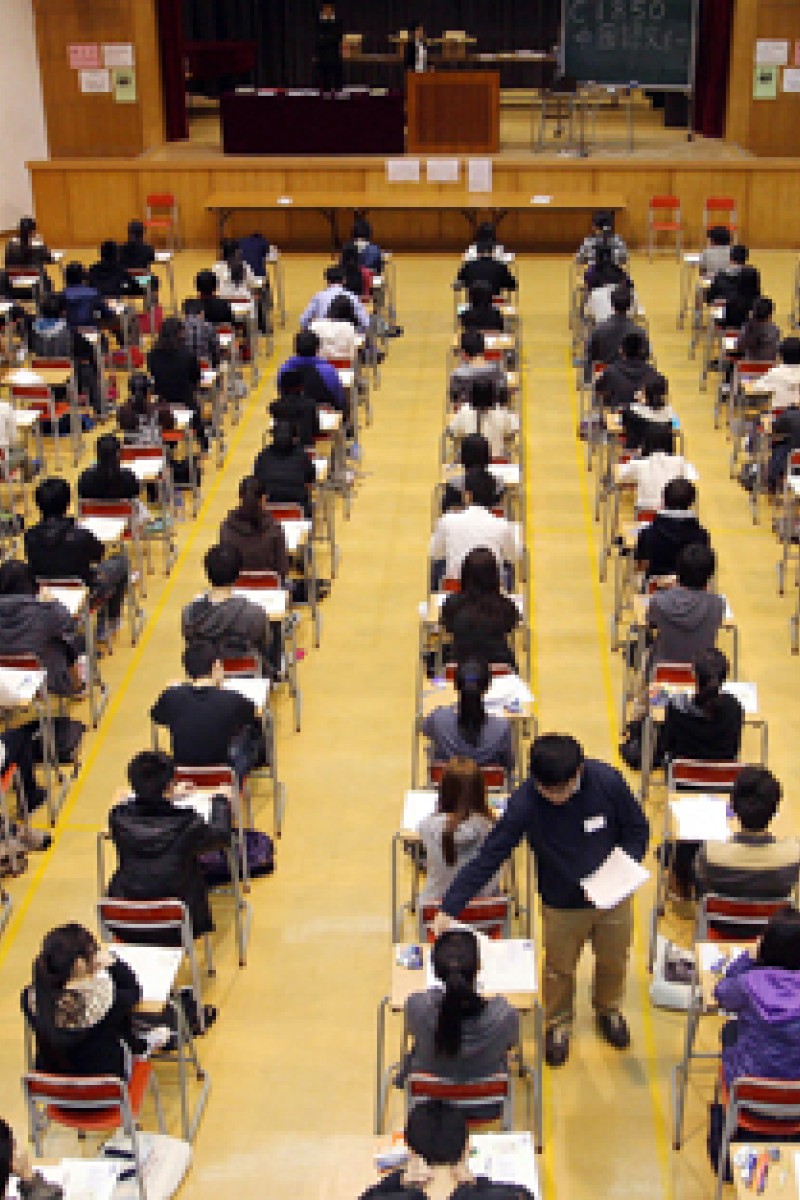
A total of 78,189 candidates sat for two papers, Chinese Language 1 and 2. Of them, 7,682 were private candidates and 70,507 were Form Six students.
But concerns were raised about the exam by a teacher and some students. They said Paper 1, the reading section, contained too many follow-up questions.
"If you failed to answer the first one, you would also fail to answer the follow-up questions," said Wan Kong, head of the Chinese Department at PLK Laws Foundation College.
In one case, three related questions were asked in the first passage of the test. If the candidate failed to answer the first one in the series, he could have lost as many as 10 points. This type of question appeared on a few occasions, Wan said.
Kate Ng Yu-yan, a student at Queen Elizabeth School, also noted the follow-up pattern. "But I'm not too worried," she said.
"I think marks will be given proportionally."
Carmel Secondary School student Cassandra Ng said the test was as difficult as last year's exam.
Wan said several questions were based on The Analects by Confucius.
The HKDSE officially began last Tuesday, with technology and living being the first subject to test 408 candidates.
But yesterday's exams were attended by a majority of Form Six students. Chinese language is a compulsory subject if students want to apply for local universities via the Joint University Programmes Admissions System, or Jupas.
